

Throughout the year, Índia Vanuíre Museum offers a free-of-charge program with talks, expositions, courses, workshops and cultural events making the museum dynamic and increasing the services to the public.
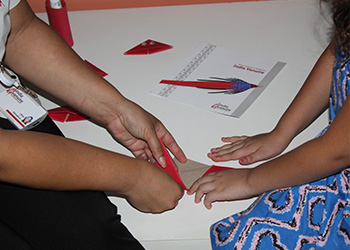
The families from Tupã and the region have in these weekend workshops an opportunity to share fun moments through educational activities to be experienced by everyone in the Museum space.
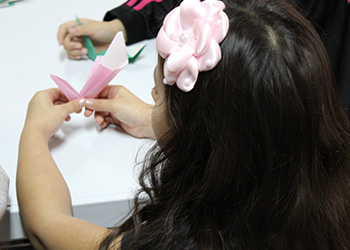
In January and July, the children of Tupã have a sure destination for fun. At Índia Vanuíre Museum, the little ones make the most of these months packed with activities, among which are the exhibition of videos, workshops, rallies and activities about the memories of the city. The workshops aim to enable moments of cultural leisure.
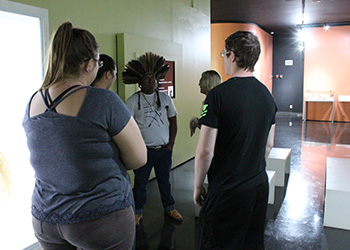
As a response to the effort made by indigenous communities across the country, with regard to the enhancement of their memories, the India Vanuíre Museum extends beyond April 19, Indian Day, its attention to the indigenous people. During this monthly activity, the institution promotes dialogue between an invited indigenous and the Museum’s visiting public.
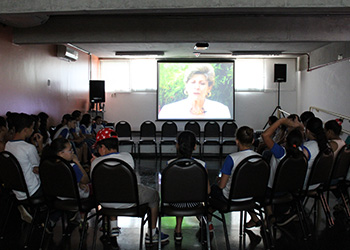
In order for new generations to recognize the contribution and influence of different groups to the construction of Brazilian society, the Museu India Vanuíre presents and discusses a video documentary.
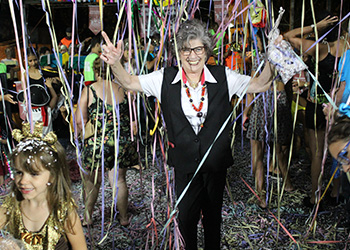
India Vanuíre Museum, in a partnership with the City Hall, organises the Folia Museum during Carnival. It is proposed a night of amusement with marchinhas that marked the Carnivals in Tupã and that were played by the Municipal Orchestra Conductor Julio de Castro. Besides the typical party, exhibitions and other thematic actions are offered.
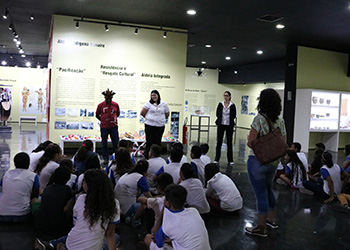
As a tribute to the Indigenous People Day, April 19, Índia Vanuíre Museum promotes the “Tupã Indian Week”. At the event, the institution offers a program free of charge to value Indian cultures and reflect on the Indians’ participation in Brazilian society. Among the activities are handicraft workshops, talks, expositions, musical and dance presentations and handicraft and cooking fairs. The action is done in a partnership with Tupã City Hall.
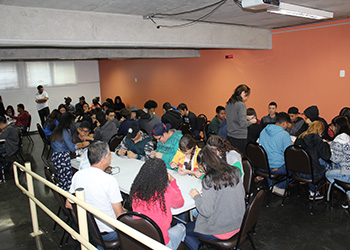
To celebrate August 9, every year the museum prepares a special program, Tupã Week, in Celebration of the International Day of the Indigenous People. The activities include itinerant exhibits, debates, workshops, music and dance performances and handicraft and cooking fairs. The activity aims at increasing the reflection about Indian matters and bringing the Tupã community and communities from other municipalities closer to contemporary Indian cultures, especially the inhabitants of the Vanuíre and Icatu Indian Lands (IL) and the Kaingang, Krenak and Terena people.
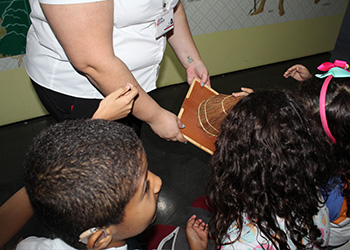
Every year in May, Índia Vanuíre Museum performs special actions that integrate the Museum Week program. Promoted by Ibram (Brazilian Museum Institute), the annual agenda proposes a theme to execute different actions at cultural institutions; especially those related to museums, to celebrate the International Museum Day celebrated on May 18.
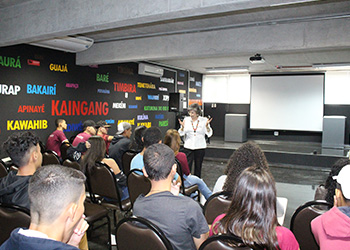
With the arrival of spring, museums and cultural institutions are invited by Ibram (Brazilian Museum Institute) to offer a special program to stimulate museums and the community to participate in a debate about current affairs, stimulate the visitation to museums and bring society closer to the museums. Índia Vanuíre Museum always prepares a special program for this occasion.
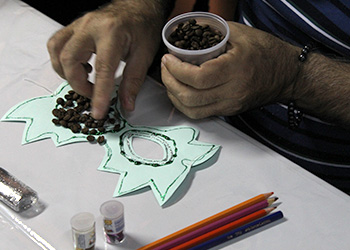
Every Wednesday, Índia Vanuíre Museum receives the public from the Dom Bosco Clinic as a strategy to integrate its patients into society. This action aims at social inclusion through fun educational activities developed based on the museum collection, exploring themes and situations to build a feeling of belonging and the exercise of individual and collective memories.
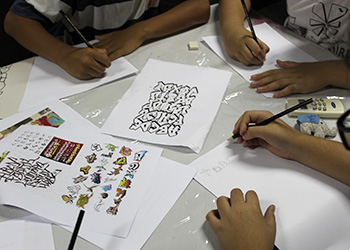
To celebrate the Black Awareness Day (20/11), Índia Vanuíre Museum offers a special program to approach the importance and influence of the black people in the formation of Brazilian society and culture. The date marks the death of Zumbi, the black leader that fought for the freedom of the slaves.
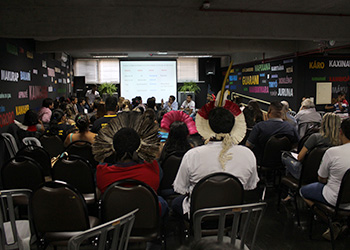
Done annually by the Museum in a partnership with the Archaeology and Ethnology Museum of USP (São Paulo University). The programming offers talks and conferences which propose the debate about the relation among between the museums and the indigenous peoples, highlighting the main role of the museological institutions for the process of adoption of new practices aiming contributions for the indigenous cultures and the formation of Brazilian identity, considering the Indian as producer of knowledge that must be respected.
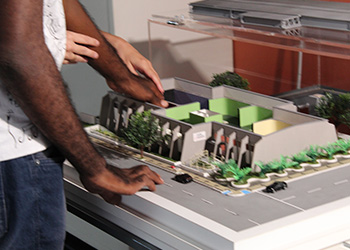
This is a sociocultural project developed with the Lightened Life Program of the Unimed, aiming to include blind people so that they can often visit the India Vanuíre Museum, of Tupã, promoting that the staff of the museum can live together with this important type of public.
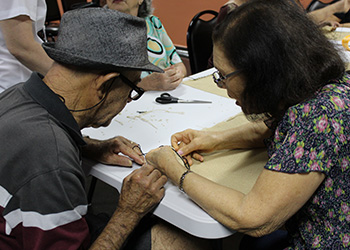
The project contributes for the social and cultural inclusion of the elderly, so that they can be able to reach their potentialities and knowledge by reliving their good moments of life and therefore have a more positive view, bringing the self-esteem back through affective search of memories.
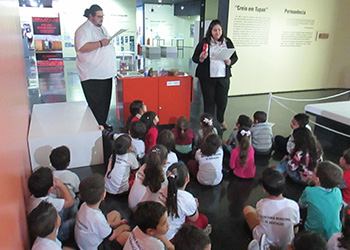
The project promotes playful storytelling, which seeks through tales, myths and legends to provide visitors with the dissemination and expansion of knowledge related to the cultures present in the long-term exhibition “Tupã Plural”, which are related to Brazilian indigenous peoples and immigrants who contributed to the identity formation and development of Tupã. It also aims to stimulate reading and understanding by visitors outside the school environment, providing cultural dissemination.
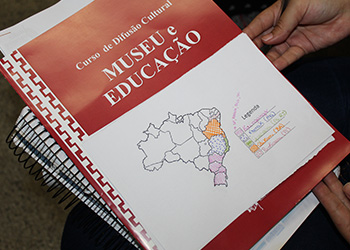
The project consists of the training and interaction of teachers and students through museological actions, encouraging them to develop projects and educational visits to the museum, with the aim of using cultural heritage as an essential support to the educational process and social development, in addition to contributing to the construction of knowledge in the museum area.
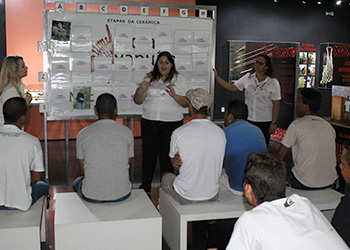
The Museum is an institution that proposes to create space for different social groups. This project aims to strengthen the training of children, adolescents and young people as subjects that are positively integrated into society and to spread the museum culture in its diversity, promoting the exchange of experiences among them, in order to enable their valorization as beings that are producers and consumers of culture.
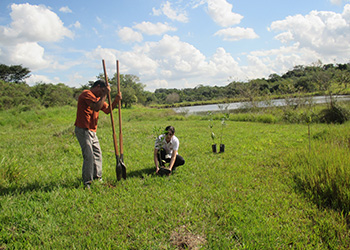
The Green Museum Project consists of forest restoration activities, amortizing pollutant gas emissions made by the museum and its employees. For this purpose, the planting of native and ornamental tree seedlings that the institution receives through a donation from the Municipal Secretariat for the Environment is carried out, with the planting of native seedlings for the community.
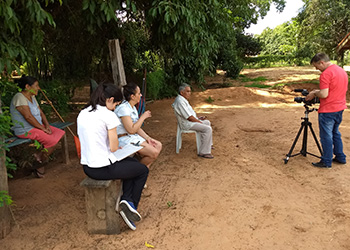
The work in partnership with the indigenous lands of the region is developed through the Identity Project, which seeks to support the strengthening of traditions and the maintenance of indigenous memory, encouraging actions aimed at the consolidation of culture as a final product. This initiative promotes cycles of exchange of information and knowledge about museological processes among members of indigenous communities, communities in the city, universities, museums and the team of the India Vanuíre Museum and, also, the dissemination of material and immaterial heritage resulting from the processes museological works of indigenous communities in the Tupã region, in indigenous lands and in the museum, through exhibitions (long-term, temporary or itinerant exhibitions) and educational activities (activities, materials or publications).
